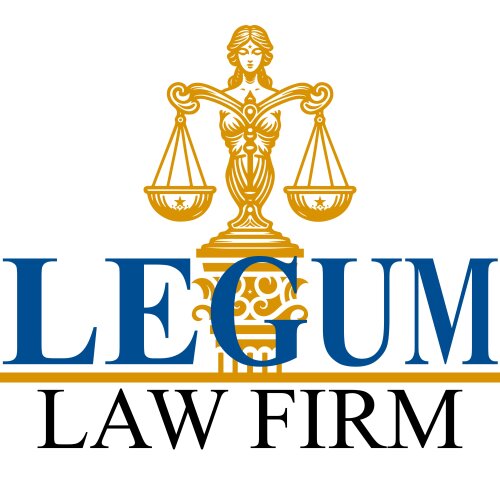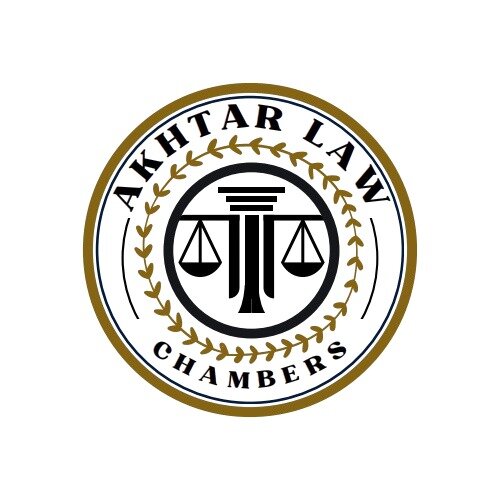Best Antitrust Lawyers in Pakistan
Share your needs with us, get contacted by law firms.
Free. Takes 2 min.
Or refine your search by selecting a city:
List of the best lawyers in Pakistan
About Antitrust Law in Pakistan
Antitrust laws in Pakistan are designed to promote fair competition and prevent monopolistic practices. The legal framework primarily revolves around the Competition Act, 2010, which is enforced by the Competition Commission of Pakistan (CCP). The Act aims to prohibit anti-competitive business practices such as cartels, abuse of dominant position, and deceptive marketing, ensuring a level playing field for businesses and protecting consumer interests.
Why You May Need a Lawyer
Engaging a lawyer specializing in antitrust law can be crucial in various situations, including:
- When facing allegations of participating in anti-competitive activities such as price-fixing or collusion.
- If your business plans to merge with or acquire another company, ensuring compliance with antitrust laws.
- To contest or defend against claims of abusing a dominant position in the market.
- When developing marketing strategies or commercial agreements to avoid deceptive practices.
- If your enterprise is affected by anti-competitive behavior of rival companies.
Local Laws Overview
The Competition Act, 2010, is the cornerstone of antitrust regulations in Pakistan. Key features include:
- Prohibition of Anti-Competitive Agreements: The Act prohibits agreements that can restrict competition, such as fixing prices or dividing markets.
- Abuse of Dominant Position: Companies holding a significant market share must not exploit consumers by unfair means like imposing unreasonable terms.
- Merger and Acquisition Controls: Requires notification and possible approval from the CCP for mergers and acquisitions that may affect market competition.
- Competition Advocacy: Promotes competition as a public policy through awareness and advocacy programs.
Frequently Asked Questions
What is the main legislation for antitrust in Pakistan?
The main legislation is the Competition Act, 2010.
What is the role of the Competition Commission of Pakistan?
The CCP is responsible for enforcing antitrust laws, preventing anti-competitive practices, and promoting competition.
What constitutes an anti-competitive agreement?
Any agreement between businesses that restricts competition, such as price-fixing, market sharing, or bid-rigging, is anti-competitive.
What is considered abuse of a dominant position?
Exploitation of market dominance to eliminate competition, such as predatory pricing, tying, or exclusive dealing can be considered abuse.
Do all mergers require CCP approval?
Only mergers or acquisitions that significantly impact competition need CCP clearance.
Can individuals report anti-competitive practices?
Yes, individuals or businesses can report suspected anti-competitive practices to the CCP.
What penalties exist for violating antitrust laws?
Penalties can include fines, orders to cease anti-competitive practices, and in severe cases, criminal charges
How does the CCP handle deceptive marketing practices?
The CCP investigates misleading claims and can take action to protect consumer interests and ensure truthful marketing.
Can businesses seek exemptions from certain competition rules?
In specific circumstances, businesses may apply for exemptions if it leads to improved production, distribution, or technical progress.
How long do CCP investigations typically take?
The duration varies depending on case complexity, but the CCP aims for prompt resolution.
Additional Resources
For further information and assistance, consider the following resources:
- The Competition Commission of Pakistan official website for guidelines and updates.
- Legal publications and academic journals covering antitrust law in Pakistan.
- Business and industry associations that offer seminars and workshops on competition law.
Next Steps
If you require legal assistance in antitrust matters, consider the following actions:
- Consult with a lawyer specializing in competition law to assess your situation.
- Gather all relevant documents and information related to your case or query.
- Contact the CCP for preliminary guidance or to report suspected violations.
- Stay informed about competition regulations to ensure compliance in business operations.
Taking prompt action can help safeguard your interests while promoting fair competition.
Lawzana helps you find the best lawyers and law firms in Pakistan through a curated and pre-screened list of qualified legal professionals. Our platform offers rankings and detailed profiles of attorneys and law firms, allowing you to compare based on practice areas, including Antitrust, experience, and client feedback.
Each profile includes a description of the firm's areas of practice, client reviews, team members and partners, year of establishment, spoken languages, office locations, contact information, social media presence, and any published articles or resources. Most firms on our platform speak English and are experienced in both local and international legal matters.
Get a quote from top-rated law firms in Pakistan — quickly, securely, and without unnecessary hassle.
Disclaimer:
The information provided on this page is for general informational purposes only and does not constitute legal advice. While we strive to ensure the accuracy and relevance of the content, legal information may change over time, and interpretations of the law can vary. You should always consult with a qualified legal professional for advice specific to your situation.
We disclaim all liability for actions taken or not taken based on the content of this page. If you believe any information is incorrect or outdated, please contact us, and we will review and update it where appropriate.
Browse antitrust law firms by city in Pakistan
Refine your search by selecting a city.

















